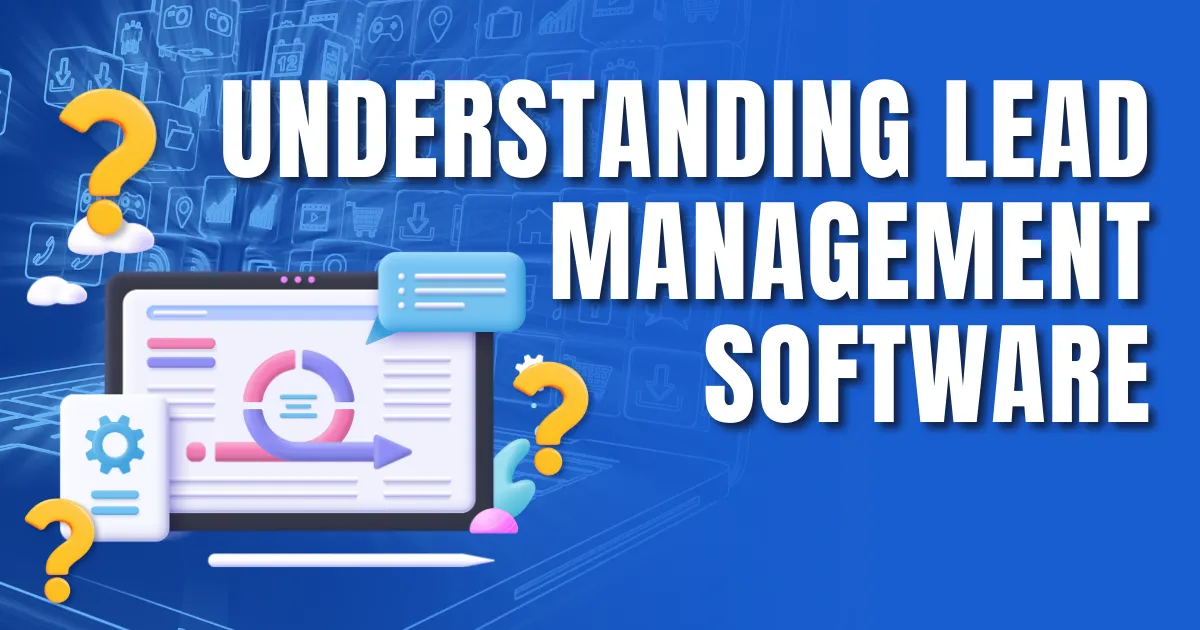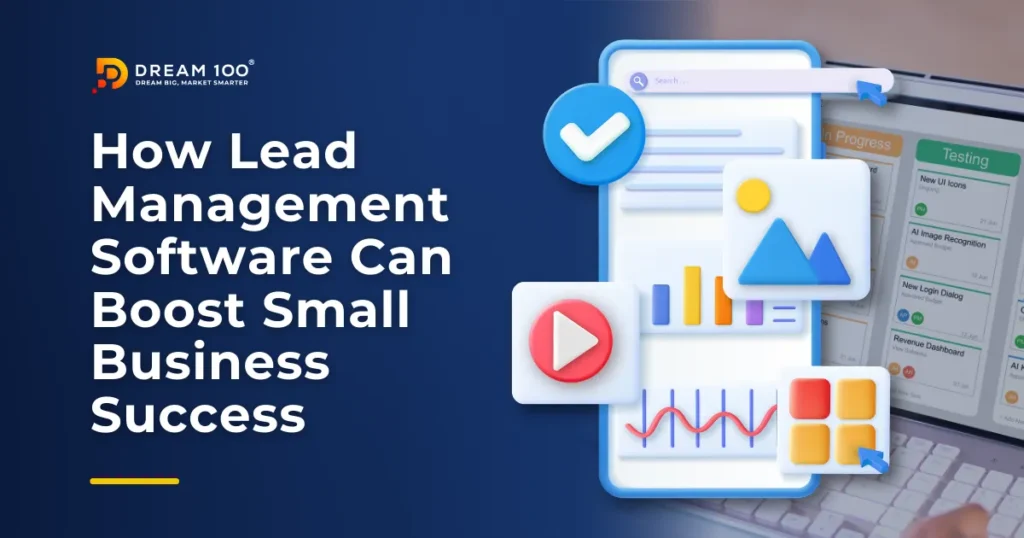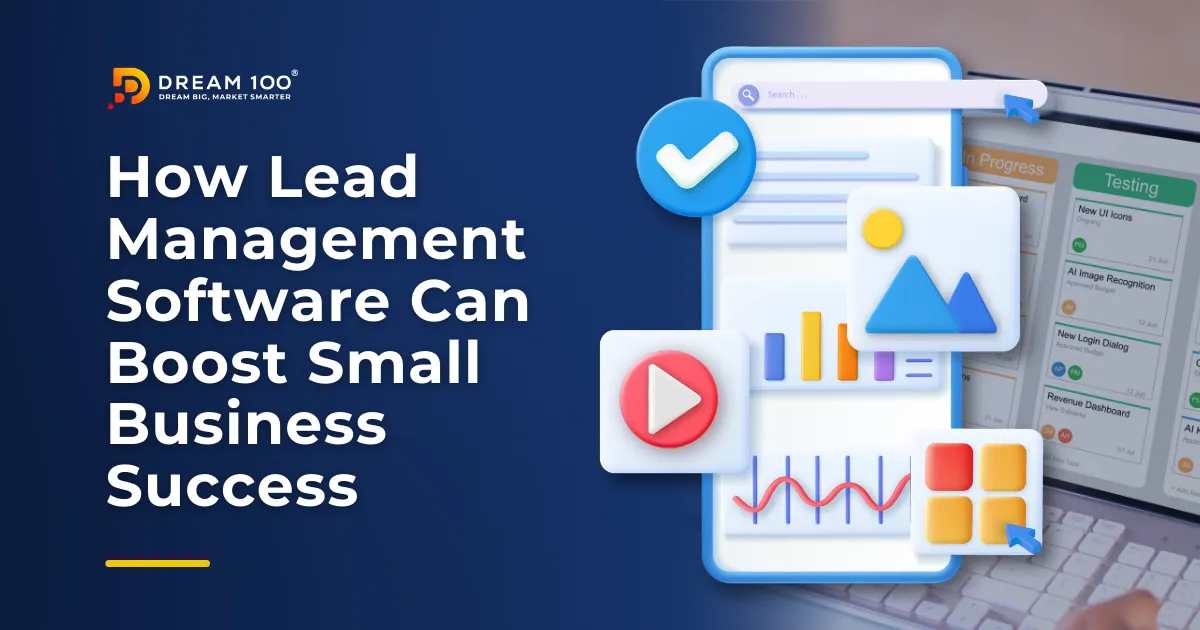Managing leads effectively is one of the most critical challenges for small businesses. With limited resources and stiff competition, ensuring no potential customer slips through the cracks is vital. This is where lead management software for small business becomes a game-changer.
In this blog, we’ll explore the transformative potential of lead management tools, delve into their key features, and discuss actionable ways to leverage them for small business growth.
1. Why Lead Management Matters for Small Businesses
For small businesses, leads are the lifeblood of success. Every potential customer represents an opportunity to grow revenue, strengthen customer relationships, and scale operations. However, without an effective system, leads can fall through the cracks.
The key challenges small businesses face with lead management include:
- Time constraints: Managing leads manually is time-intensive and inefficient.
- Missed opportunities: Inconsistent follow-ups lead to lost sales.
- Disorganized data: Scattered spreadsheets and emails make tracking customer interactions a nightmare.
Read More: How Streamlining Your Marketing Process Drives Revenue
2. Understanding Lead Management Software

Lead management software is more than a tool—it’s a strategy enabler. By organizing, tracking, and nurturing leads from acquisition to conversion, these systems empower businesses to stay ahead of the competition.
How it works:
- Captures leads from various sources (e.g., website forms, social media, email campaigns).
- Centralizes lead data in one accessible platform.
- Automates follow-ups and communication workflows.
Key features to look for:
- Lead segmentation: Helps target the right prospects with tailored messages.
- Analytics and reporting: Provides actionable insights into lead behavior and sales trends.
- Integration capabilities: Syncs with CRM, email, and other marketing tools.
Read More: Top Trends in CRM Software for Small Businesses
3. The Benefits of Lead Management Software for Small Businesses
Investing in lead management software delivers measurable benefits, including increased efficiency, higher conversion rates, and improved customer satisfaction.
a. Streamlined Lead Generation
Capture and nurture leads seamlessly with integrated tools that simplify the process. For instance, marketing automation can identify high-value leads, saving your team hours of manual effort.
b. Enhanced Client Relationships
Pairing lead management with CRM leads capabilities enables businesses to build stronger, long-term customer relationships. A 360-degree view of customer interactions allows you to personalize communication and foster loyalty.
c. Better Team Collaboration
Centralized data ensures that sales and marketing teams are always aligned. No more guessing about where a lead stands in the funnel.
d. Increased ROI
With a streamlined process, you’ll close deals faster and reduce wasted resources.
4. Choosing the Right Lead Management Software

With so many options on the market, selecting the right software for your small business can feel overwhelming. Here’s how to make the process easier:
- Identify your needs: Outline your specific challenges and goals.
- Prioritize user-friendliness: Ensure the software is intuitive and doesn’t require extensive training.
- Check integrations: Look for solutions that sync with your existing tools, such as email platforms or marketing automation systems.
- Evaluate scalability: Choose software that can grow with your business.
5. Boosting Small Business Success with the Dream 100® Done-for-You Program
While lead management software is a powerful tool, combining it with proven strategies like the Dream 100® can take your small business to the next level.
The Done-for-You Program simplifies the process by handling your lead generation and client management tasks, allowing you to focus on building relationships and closing deals.
Learn more about our Done-for-You Program here: Dream 100® Done-for-You Program
6. Real-Life Impact of Lead Management Software
Let’s look at an example. A small e-commerce business implemented lead management software to organize its growing customer base. By using segmentation and automation features, the company saw:
- A 30% increase in lead-to-customer conversions.
- A 50% reduction in response time, improving customer satisfaction.
- Enhanced team collaboration across marketing and sales.
This demonstrates how even a modest investment in technology can yield substantial returns.
7. Key Tools to Consider

When choosing lead management tools, small businesses should consider these highly-rated options:
- HubSpot CRM: Ideal for beginners, with a free version available.
- Zoho CRM: Offers affordable pricing and robust features.
- Pipedrive: Perfect for sales-driven teams.
- Monday.com: Combines project management with lead tracking.
Pro Tip: Pair your lead management software with client management tools to ensure a seamless customer experience.
Read More: How to Optimize Customer Journeys with CRM
8. Dream 100®: Simplifying Small Business Success
At Dream 100®, we know the struggles small businesses face in juggling marketing, sales, and operations. That’s why we’ve designed solutions like the Done-for-You Program to eliminate the complexity of lead management while driving measurable results.
With Dream 100®, you’ll benefit from:
- Expert support tailored to your industry.
- Proven strategies that maximize ROI.
- Time-saving systems that allow you to focus on scaling your business.
Ready to transform how you manage leads and clients? Start today with the Dream 100® advantage.
Conclusion
Investing in lead management software for small business is one of the smartest moves you can make. By streamlining your lead generation, enhancing customer relationships, and driving team collaboration, you’ll set your business up for long-term success.
For additional tips and strategies, check out our Complete Guide to Lead Generation. And don’t forget to explore how the Dream 100® Done-for-You Program can revolutionize your approach to managing leads.





